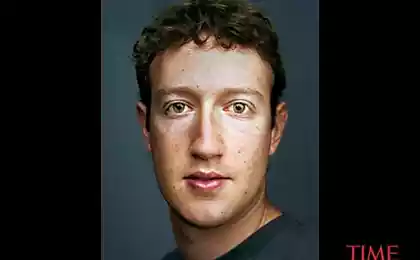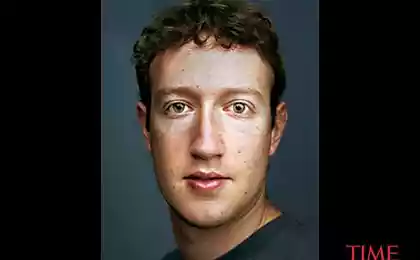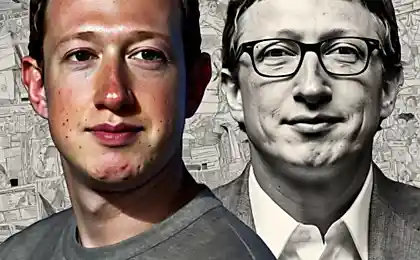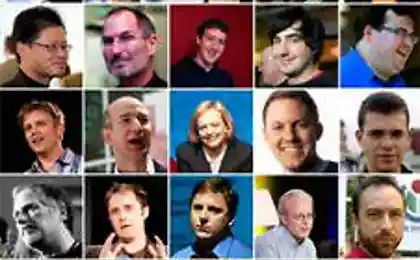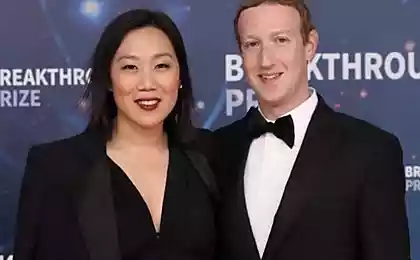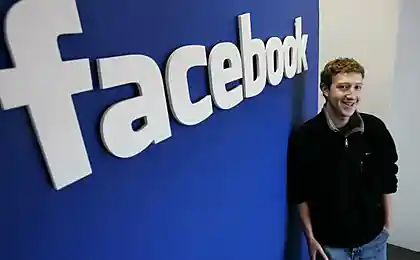1214
20 books that we recommend Mark Zuckerberg
In 2015, Mark Zuckerberg has made a commitment: to read a book a week. "Reading brings intellectual satisfaction, books can fully examine a topic and dive into it better than most of the media». < Website published a selection of books that Mark liked the most.
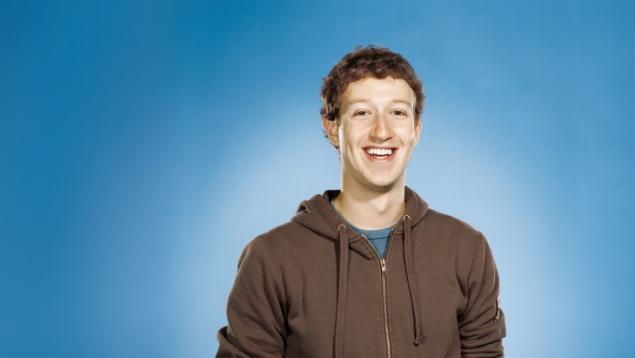
«Factory of Ideas: Bell Labs and the great era of American innovation," Jon Gertner h2> Modern inhabitants of Silicon Valley may not agree. but John Gaertner, in his book "Factory of Ideas" states that the main innovation in the United States were born in the period from 1920 to 1980 in the walls of Bell Labs (the Franco-American company, a major research center in the field of telecommunications, electronic and computer systems).
«World Order", Henry Kissinger h2> When Zuckerberg had a daughter, he thought a lot about how to make the world a better and safer. In the book "The world order," the author explains the main points about how different countries interact with each other, some mistakes were made in the history and learn how to show compassion in different aspects of life.
«Why do states fail", Daron Acemoglu and James Robinson h2> This book is the result of 15 years of research conducted by MIT economist Daron Acemoglu and Harvard political scientist James Robinson. The first edition was published in 2012.
«rational optimist", Matt Ridley h2> The book published in 2010 book "The Rational Optimist" is perhaps one of the most popular and at the same time, the disputed works by masters of the genre of science fiction Matt Ridley. In the book, he argues that the key to human progress is a trade, and what it is more open, the more potential for progress. As a result of the evolution of the ideas of humanity will be able to improve their living conditions, despite the overpopulation and climate change.
«Portfolio poverty", Darrell Collins, Jonathan Murdock Stewart Razenford Orlando Ratven h2> The researchers Darrell Collins, Jonathan Murdock Stewart Razenford and Orlando Ratven spent 10 years researching the lives of the poor in regions such as Bangladesh, India and South Africa. They concluded that extreme poverty flourishes not where people do not know how to manage money and earn little, and where there is limited access to financial institutions, in which they can keep their money.
«The problem of three bodies," Liu Cixin h2> The book, first published in 2008, has won several awards for best story and the best sci-fi work. The action takes place in the era of the Cultural Revolution, Mao Zedong, and tells the story of how after a secret message sent by the Chinese government to space aliens decide to take over the Earth.
«Genome" Matt Ridley h2> Ridley - the only author who appears twice in the list of Zuckerberg. His book "Genome," published in 1990, explains the two phenomena: the evolution of genes and development of technologies in the field of genetics.
«Muqaddimah" Ibn Khaldun h2> «Muqaddimah" or "Introduction" in 1377 wrote the Islamic historian Ibn Khaldun. This is an attempt to abstract from historical records and find the universal elements of human progress.
«Homo sapiens," Yuval Noah Harari h2> Book a professor at the Hebrew University in Jerusalem Yuval Harari critics declared an international bestseller in 2014. It shows the evolution of the human scientist from the hunter-gatherer in the self-proclaimed "god" of the future.
«Varieties of Religious Experience" by William James h2> William James - one of the most famous American philosopher XIX and early XX century. "Varieties of Religious Experience" - a series of recorded lectures, in which James explains the religion from the standpoint of consciousness, and the way people use religion to explain the essence of things, to convince himself to move forward in life with energy and purpose.
«New Jim Crow," Michelle Alexander h2> Professor of Law at Ohio State University and human rights defender Michelle Alexander argues in his book that the "drug war" spawned a culture in which prisons are overcrowded by young black men. They are treated as second-class citizens, as soon as they are released.
«End of power," Moises Naim h2> This sonorous title Zuckerberg opened a book club. Moises Naim - a former executive director of the World Bank and now a senior fellow at the Carnegie Endowment for International Peace.
«Creativity", Ed Catmull h2> This is the story Pixar, written by one of the founders of the giants of computer animation. Catmull narrative full of entrepreneurial and managerial wisdom. He claims that the biggest mistake the leader - to suppress the creativity of its employees.
«best in us," Steven Pinker h2> Tsukerebrg agree that the book is 800 pages of the Harvard psychologist looks scary. But the work is really easy to read. According to Zuckerberg, the study Pinker on how the 24-hour news and social media increase the level of aggression and violence in the world - can change lives.
«On guard immunity," Eula Biss h2> Zuckerberg believes that given the anti-vaccination campaign, which launched in the US and Europe, it is wise to check out a study Biss why vaccination is really necessary. "It is clear as daylight: vaccination works and is very important for the health of everyone in our society," - said Mark, adding that he strongly recommended the book, scientists and physicians.
«The Gambler", Iain Banks h2> The second book of the series "Culture" was first published in 1988. Author fantasizes about how civilization would look like if a super-advanced technologies that are designed to serve the people, surpassed human capabilities.
«Capo day", Sudhir Venkatesh h2> Professor of Sociology at Columbia University, Sudhir Venkatesh infiltrated a gang of Chicago in the 90's for a very radical experiment. According to Zuckerberg, the story is very inspiring Venkatesh on communication and understanding between people, despite the economic and cultural barriers.
«The Structure of Scientific Revolutions", Thomas Kuhn h2> If a physicist ever wrote a book on philosophy, it would be "Structure of Scientific Revolutions." Published in 1962, the book became one of the most cited scientific books of all time because of its approach to the evolution of science and its impact on the modern world.
«Orwell's Revenge," Peter Huber h2> A member of the Manhattan Institute for Policy Studies Peter Huber published his unofficial sequel to George Orwell's novel "1984" in 1994 - while the Internet and telecommunications have opened up new ways of communication. The novel describes a world where people are using the technology, once enslaved them, to free themselves.
«Energy: A Beginner's Guide," Vaclav Smil h2> The book begins with an explanation of what energy is, and then moves on to more complicated things, like the search for effective and environmentally friendly fuel. Her teacher wrote Vaclav Smil of the University Manitoba, one of the favorite authors of Bill Gates.
«contacts with China", Henry M. Paulson Jr. h2> In the last few years, Zuckerberg won the Chinese culture. He learned Mandarin and has repeatedly said that its long-term goal - to persuade the Chinese government to allow its citizens to use Facebook.
«Rational ritual", Michael Suk-Young Che h2> According to Zuckerberg, the book is an economist from the University of California in Los Angeles, Michael Suk-Young Che helps to understand how best to use social networks. "This book - the concept of" common knowledge "and how people perceive the world not only in the light of their own knowledge, but also on the basis of general knowledge, which we share," - said Zuckerberg.

«Factory of Ideas: Bell Labs and the great era of American innovation," Jon Gertner h2> Modern inhabitants of Silicon Valley may not agree. but John Gaertner, in his book "Factory of Ideas" states that the main innovation in the United States were born in the period from 1920 to 1980 in the walls of Bell Labs (the Franco-American company, a major research center in the field of telecommunications, electronic and computer systems).
Gertner tells the history of the birth of the most ingenious inventions of the 20th century, including a fax machine, the first television transmitter working at long distances and the first steps of mobile technology. Whatever unique devices today do not arise in the world, probably, they were supposed to start it in the Bell Labs.
«World Order", Henry Kissinger h2> When Zuckerberg had a daughter, he thought a lot about how to make the world a better and safer. In the book "The world order," the author explains the main points about how different countries interact with each other, some mistakes were made in the history and learn how to show compassion in different aspects of life.
The book is ideal for reading in our troubled times, when the Globe shake conflicts unsolvable at first sight.
«Why do states fail", Daron Acemoglu and James Robinson h2> This book is the result of 15 years of research conducted by MIT economist Daron Acemoglu and Harvard political scientist James Robinson. The first edition was published in 2012.
According to the authors, "producing governments" use the power for the prosperity of the few, but "having the government" create open markets, on which citizens can spend and invest the money at its discretion. They also believe that economic growth does not necessarily mean prosperity of the country.
Zuckerberg's interest in charity grows in direct proportion to his condition. And this book, he said, helped him to understand the root causes of global poverty.
«rational optimist", Matt Ridley h2> The book published in 2010 book "The Rational Optimist" is perhaps one of the most popular and at the same time, the disputed works by masters of the genre of science fiction Matt Ridley. In the book, he argues that the key to human progress is a trade, and what it is more open, the more potential for progress. As a result of the evolution of the ideas of humanity will be able to improve their living conditions, despite the overpopulation and climate change.
Zuckerberg chose this book because it is, in his opinion is inversely proportional to the theory of the book "Why do states fail" that the social and political forces to control the economy. "I'm curious to see how the idea would be more relevant when I'm familiar with both of them," - said Mark.
«Portfolio poverty", Darrell Collins, Jonathan Murdock Stewart Razenford Orlando Ratven h2> The researchers Darrell Collins, Jonathan Murdock Stewart Razenford and Orlando Ratven spent 10 years researching the lives of the poor in regions such as Bangladesh, India and South Africa. They concluded that extreme poverty flourishes not where people do not know how to manage money and earn little, and where there is limited access to financial institutions, in which they can keep their money.
"I just explodes brain when I imagine how many people - nearly 3 billion worldwide - live on $ 2, 5 a day. More than a billion people live on less than $ 1 a day. I hope reading this book will help us understand how we can support these people, "- said Zuckerberg.
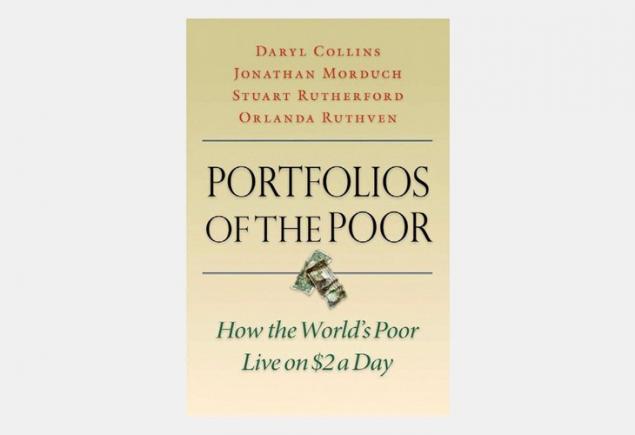
«The problem of three bodies," Liu Cixin h2> The book, first published in 2008, has won several awards for best story and the best sci-fi work. The action takes place in the era of the Cultural Revolution, Mao Zedong, and tells the story of how after a secret message sent by the Chinese government to space aliens decide to take over the Earth.
Zuckerberg said that the book had helped him escape from a hard material, which he read before.
«Genome" Matt Ridley h2> Ridley - the only author who appears twice in the list of Zuckerberg. His book "Genome," published in 1990, explains the two phenomena: the evolution of genes and development of technologies in the field of genetics.
"This book tells the story of humanity from the perspective of the genes, not sociology. It complements the many other stories that I've read this year ", - said Mark.
«Muqaddimah" Ibn Khaldun h2> «Muqaddimah" or "Introduction" in 1377 wrote the Islamic historian Ibn Khaldun. This is an attempt to abstract from historical records and find the universal elements of human progress.
Revolutionary Khaldun historical approach to the history made him a founding father of modern sociology and historiography. "While much of what people believed at the time, debunked as a result of more than 700 years of progress, it is interesting to see that people already knew and the whole world" - said Mark.
«Homo sapiens," Yuval Noah Harari h2> Book a professor at the Hebrew University in Jerusalem Yuval Harari critics declared an international bestseller in 2014. It shows the evolution of the human scientist from the hunter-gatherer in the self-proclaimed "god" of the future.
"Included with the" Muqaddimah "which served the story from the perspective of the intellectual development of the 14th century," Homo sapiens "provides modern answers to many of the same issues," - said Zuckerberg.
«Varieties of Religious Experience" by William James h2> William James - one of the most famous American philosopher XIX and early XX century. "Varieties of Religious Experience" - a series of recorded lectures, in which James explains the religion from the standpoint of consciousness, and the way people use religion to explain the essence of things, to convince himself to move forward in life with energy and purpose.
"When I read the" reasonable person ", I am most interested in the chapter about religion, so I wanted to plunge into the subject more deeply," - explained his choice founder of Facebook.

«New Jim Crow," Michelle Alexander h2> Professor of Law at Ohio State University and human rights defender Michelle Alexander argues in his book that the "drug war" spawned a culture in which prisons are overcrowded by young black men. They are treated as second-class citizens, as soon as they are released.
"For a long time I wanted to learn more about the reform of criminal law and justice, and I have recommended this book to several people that I trust," - said Zuckerberg.
«End of power," Moises Naim h2> This sonorous title Zuckerberg opened a book club. Moises Naim - a former executive director of the World Bank and now a senior fellow at the Carnegie Endowment for International Peace.
This is a historical investigation of the transfer of power from the authority of government, military and large corporations in the hands of individualists. The phenomenon is clearly seen in the fact that it became a cliche in Silicon Valley - "disruptivnyh starts».
"The trend to provide more power to the people - this is what I believe with conviction," - said Mark.
«Creativity", Ed Catmull h2> This is the story Pixar, written by one of the founders of the giants of computer animation. Catmull narrative full of entrepreneurial and managerial wisdom. He claims that the biggest mistake the leader - to suppress the creativity of its employees.
"I like to read the stories first hand about how to build these cool companies like Pixar, and brought creativity and innovation" - said Mark.
«best in us," Steven Pinker h2> Tsukerebrg agree that the book is 800 pages of the Harvard psychologist looks scary. But the work is really easy to read. According to Zuckerberg, the study Pinker on how the 24-hour news and social media increase the level of aggression and violence in the world - can change lives.
By the way, Bill Gates also believes this book one of the most important of all, that he had ever read.
«On guard immunity," Eula Biss h2> Zuckerberg believes that given the anti-vaccination campaign, which launched in the US and Europe, it is wise to check out a study Biss why vaccination is really necessary. "It is clear as daylight: vaccination works and is very important for the health of everyone in our society," - said Mark, adding that he strongly recommended the book, scientists and physicians.
"The book explains why many people are questioning the safety of vaccination, why these doubts are unfounded and that actually work and vaccinations are completely safe," - he explained.
«The Gambler", Iain Banks h2> The second book of the series "Culture" was first published in 1988. Author fantasizes about how civilization would look like if a super-advanced technologies that are designed to serve the people, surpassed human capabilities.
Zuckerberg hit a sci-fi to a little "change direction." By the way, "The Gambler" - this is one of the favorite books of Elon Musk, because it is in the entertainment vein plausible describes how technologies evolve.
«Capo day", Sudhir Venkatesh h2> Professor of Sociology at Columbia University, Sudhir Venkatesh infiltrated a gang of Chicago in the 90's for a very radical experiment. According to Zuckerberg, the story is very inspiring Venkatesh on communication and understanding between people, despite the economic and cultural barriers.
"The more we share with each other their thoughts, the more sympathy and respect we show respect for each other" - said Zuckerberg.
«The Structure of Scientific Revolutions", Thomas Kuhn h2> If a physicist ever wrote a book on philosophy, it would be "Structure of Scientific Revolutions." Published in 1962, the book became one of the most cited scientific books of all time because of its approach to the evolution of science and its impact on the modern world.
According to Zuckerberg, an understanding of how scientific progress affects social progress, can positively affect the public good.
The main idea of the book - the scientific knowledge developed by leaps and bounds through scientific revolutions. Any criterion only makes sense within a certain paradigm, historical paradigm. The scientific revolution - a change of paradigm to explain the scientific community.
«Orwell's Revenge," Peter Huber h2> A member of the Manhattan Institute for Policy Studies Peter Huber published his unofficial sequel to George Orwell's novel "1984" in 1994 - while the Internet and telecommunications have opened up new ways of communication. The novel describes a world where people are using the technology, once enslaved them, to free themselves.
"Seeing how the story plays out in reality, the book Huber describes how tools like the Internet benefit people and change society for the better" - said Zuckerberg.
«Energy: A Beginner's Guide," Vaclav Smil h2> The book begins with an explanation of what energy is, and then moves on to more complicated things, like the search for effective and environmentally friendly fuel. Her teacher wrote Vaclav Smil of the University Manitoba, one of the favorite authors of Bill Gates.
"The book addresses important topics, describes how energy works, how could develop production and consumption, all impact on climate change," - said Mark, adding that he also plans to read a book Smila "Creation of the modern world».

«contacts with China", Henry M. Paulson Jr. h2> In the last few years, Zuckerberg won the Chinese culture. He learned Mandarin and has repeatedly said that its long-term goal - to persuade the Chinese government to allow its citizens to use Facebook.
The book "Dealing with China" written by former US Treasury Secretary. In it, he explores how the growing influence of China in the rest of the world.
"Over the past 35 years, China has carried out one of the greatest economic and social transformation in human history. Hundreds of millions of people out of poverty. In many ways, this made China more than all other countries combined, "- said Zuckerberg.
«Rational ritual", Michael Suk-Young Che h2> According to Zuckerberg, the book is an economist from the University of California in Los Angeles, Michael Suk-Young Che helps to understand how best to use social networks. "This book - the concept of" common knowledge "and how people perceive the world not only in the light of their own knowledge, but also on the basis of general knowledge, which we share," - said Zuckerberg.
Che's idea may seem daunting. But it is - a real breakthrough in the understanding of how people interact with each other in social systems and how they use these rituals to define themselves.
Source Business Insider, the Russian version of Maya Spring, edition AIN.ua
via factroom.ru
About the people who have always all bad
As the world changes, when you became a mother 20 funniest comics





